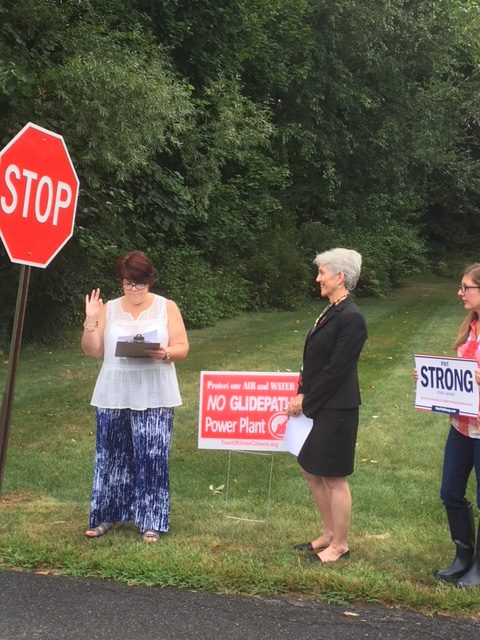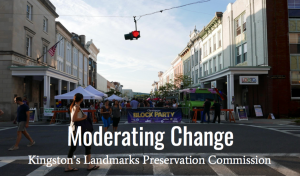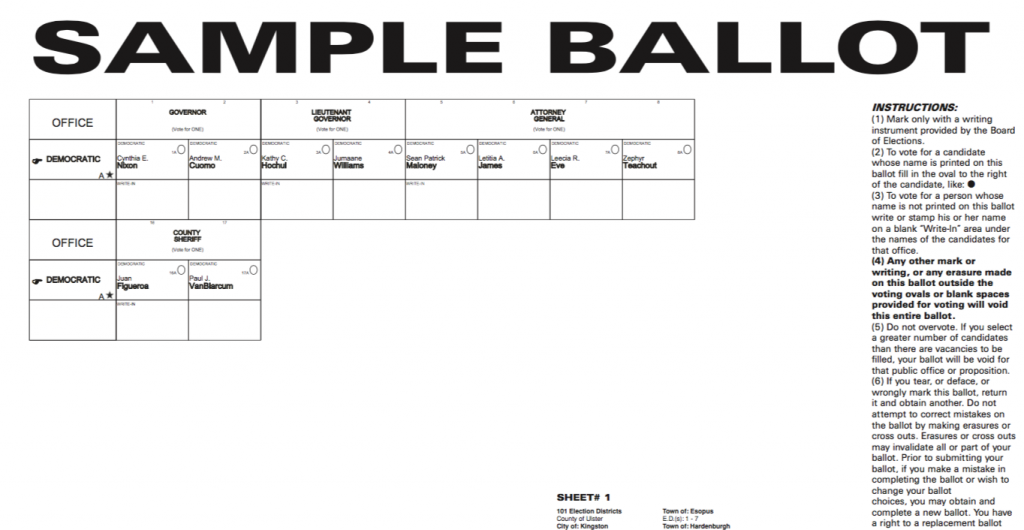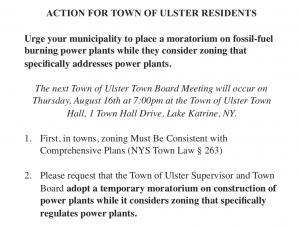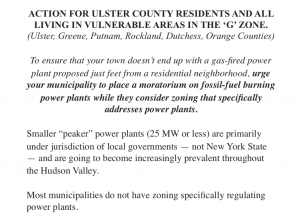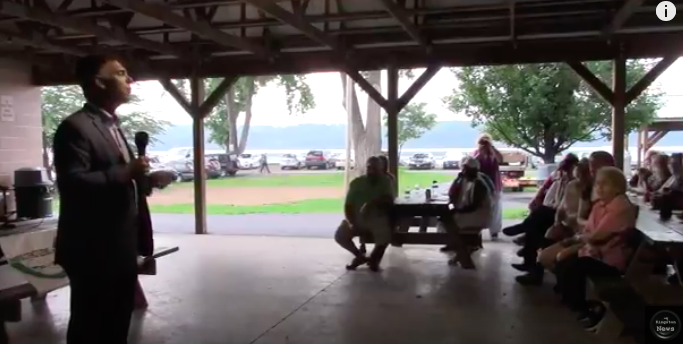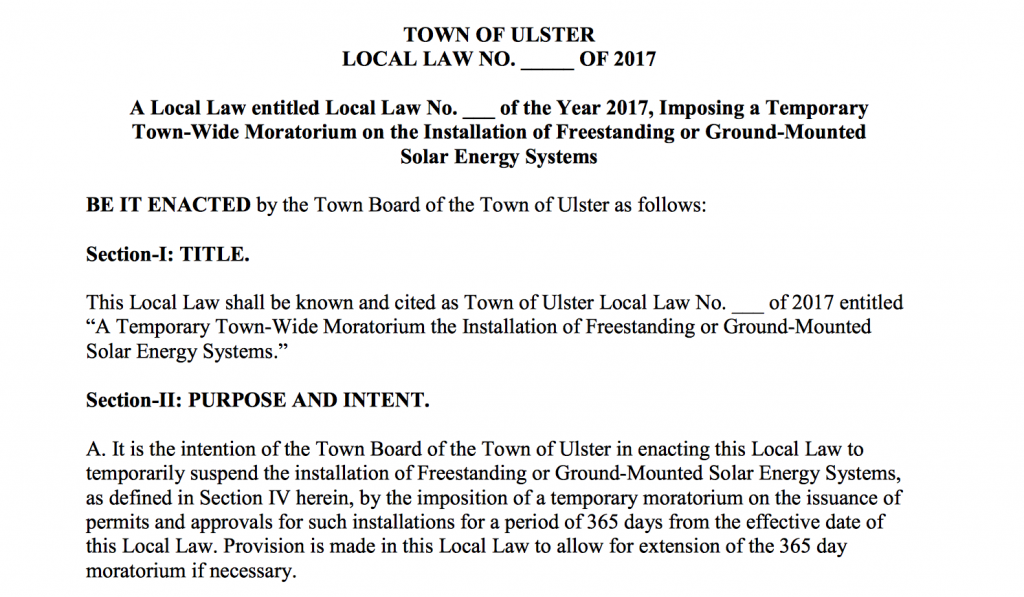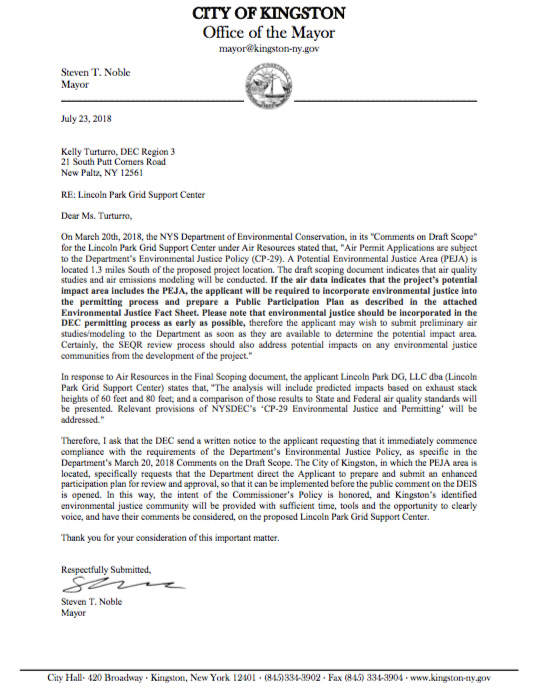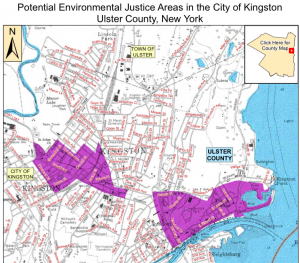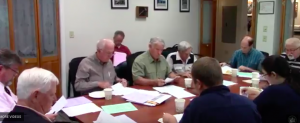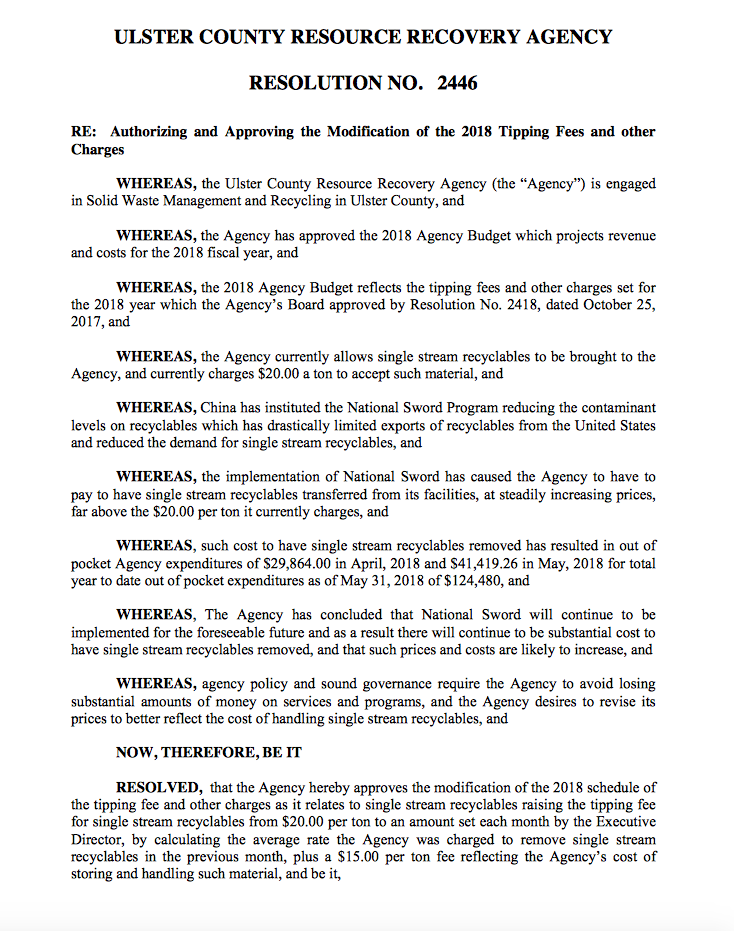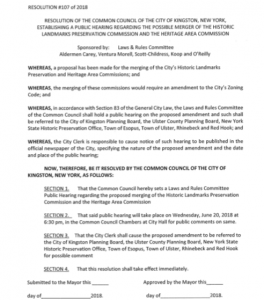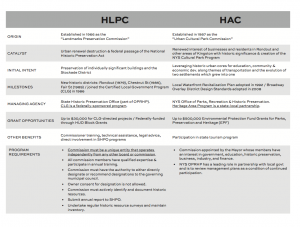CITIZEN REQUEST
Plan to attend the upcoming public hearing on June 14th at the Ulster County Legisaltive Chambers at 5pm to speak to UCRRA’s proposed plan to discontinue single-stream recycling (in 2019) and to raise rates in the meantime (effective July 1st, 2018) as well as to click on the following EMAIL hyperlink to send the following request to members of the Ulster County Legislature, UCRRA Executive Director and City of Kingston Mayor.
-
- Request that UCRRA research regional collection sites single-stream recycling and provide a report to the public on its findings“It would be helpful to put some real numbers together…what Mayor Noble asked you was, you stated what we’re making but it would be valuable to know the nearest single stream Material Recovery Facility (MRF) that are investing in the equipment and labor, to do a cost comparative” – Ulster County Legislator Manna Jo Greene
- Request that the Ulster County Legislature reconvene the Recycling Oversight Committee in 2018.“I want to make a recommendation that we consider reconvening an existing body which is called the Recycling Oversight Committee that the Legislature created to see which new materials we could add as mandatory recyclables. We’ve met a few times over the past decade…we’re now at a point where the markets are difficult, there is an international component. Because the Recycling Committee was so inclusive with citizens, environmental groups and the City of Kingston, we should seriously consider doing a consensus building process for the long run. I want to find a mechanism to work together.”
– Ulster County Legislator Manna Jo Greene
- Request that the Ulster County Legislature and UCRRA finish what is currently a “draft” Solid Waste Management Plan from 2011 to take a countywide, holistic approach. (The last ‘final’ solid waste management plan was completed in 1991.)“The point of the agency is to manage the county’s waste stream. With the Ulster County recycling law it tells the agency that it’s your responsible to manage recycling in the county….a prerogative of the agency, and the agency has invested alot of resources over the years. Recycling has changed, but the agency has not (to meet those changes). This is a countywide issue. How many county residents out of 180,000 people do single stream recycling? My guess is a large majority of the county are served by single-stream. Transfer stations are a smaller number than they were 30 years ago. The question is, how do we look at solid waste going forward? Do we have a county plan?”
– City of Kingston Mayor Steve Noble
- The Agency postpone its vote on the proposed fee increases and not consider a fee increase to go into effect until January 1, 2019, to allow participating municipalities time to budget appropriately or consider alternative options.“It took (the City of Kingston) 4 years to implement single-stream recycling in the city. We just finished this year, and there are still business districts that don’t have their totes. To get them back to this new way, with three bins that doesn’t include composting which would make it four bins. How do we do that by January, 2019?”
– City of Kingston Mayor Steve Noble
- Request that the Ulster County Legislature Energy and Environment Committee take up the issue of flow control over recycling by asking for the authority from the state.“It’s a state law in your enabling legislation. If we can get the state to amend it, the county should have a plan for recycling so that we can be in charge of our own destiny.”
– City of Kingston Mayor Steve Noble.
By Rebecca Martin
On Thursday, May 23rd, the Ulster County Recovery Resource Agency (UCRRA) held an informational meeting on the current climate of single-stream recycling, it’s plan to raise rates as of July 1, 2019, and to discontinusingle-stream recycling as of January 1st, 2019.
What is UCRRA?
According to their website, “In 1986, the Ulster County Legislature obtained authorization from the State Legislature for the creation of the Ulster County Resource Recovery Agency (the “Agency”), a public benefit corporation which was formed for the purpose of developing, financing, and implementing a comprehensive Countywide solid waste management program. In the mid-1980’s, after new initiatives to close non-complying exiting landfills were undertaken by the NYSDEC and strict requirements for the siting, construction, and operation of new disposal facilities were enacted, many communities found it beyond their financial and managerial capability to continue to dispose of waste in traditional ways. Consequently, many of the local municipalities in Ulster County requested that the Ulster County government assume the responsibility for solid waste management, and the Agency was created by the New York State Legislature pursuant to Chapter 936 of the Public Authorities Law approved December of 1986. The Agency’s organizational structure consists of a five-member Board of Directors; an Executive Director; Agency Counsel; and thirty administrative and operations personnel.”
UCRRA Proposes to Raise Rates and Discontinue Single Stream Recycling.
According to a chart presented during the meeting, UCRRA became aware of a changing Chinese market for single stream recycled materials in October of 2017. As I understand it, although potential rate hikes had been discussed at around this time between UCRRA Executive Director Timothy Rose and City of Kingston Mayor Steve Noble, the decision for the county authority to discontinue single-stream recycling was learned from in a newspaper article released only one month ago.
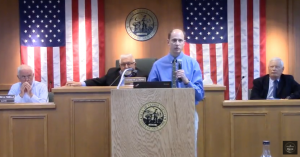
VIDEO #1: Click on Image to View
1:01 – 16:19: David Gordan, UCRRA Vice Chair
Presentation
Currently, the City of Kingston pays $20 per ton for comingled recycling materials. UCRRA claims that new categories have been formed, where rates will be $56 per ton for a ‘clean load’ (minimum contamination) or $107 per ton for a ‘dirty load’ (maximum contamination).
16:20 – 20:15: City of Kingston Mayor Steve Noble
“We don’t know what companies are selling materials for after the single-stream plant processes it?”
“We are presuming that the market is functioning honestly.” – David Gordan
“The Chinese market has decided to not accept our contaminated materials any longer.” – Tim Rose, Executive Director, UCRRA
“When we talk numbers, I was wondering if your $400 a ton included the cost to the agency to get that amount…I don’t think that’s included. ” – CoK Mayor Steve Noble
22:51 – 25:51: UC Legislator David Donaldson, City of Kingston
“The plastic doesn’t get contaminated in single-stream…you still will receive money for plastic and cans.”
“Material Recovery Facility’s (MRF) are extremely expensive to operate. You are looking at labor costs, electrical costs.” Description of an MRF is here: 24:10 – 25:05.
“Plastic bags are a big issue.” (25:08 – 25:30)
25:52 – 28:47: UC Legislator Manna Jo Green
“It would be helpful to put some real numbers together…what Mayor Noble asked you was, you stated what we’re making but it would be valuable to know the nearest single stream MRF that are investing in the equipment and labor, to do a cost comparative…I want to make a recommendation that we consider reconvening an existing body which is called the Recycling Oversight Committee that the Legislature created to see which new materials we could add as mandatory recyclables. We’ve met a few times over the past decade…we’re now at a point where the markets are difficult, there is an international component. Because the Recycling Committee was so inclusive with citizens, environmental groups and the City of Kingston, we should seriously consider doing a consensus building process for the long run. I want to find a mechanism to work together.”
38:12 – 38:44: Charlie Landi, UCRRA Treasurer
“When the RRA first came to being, its losses were subsidized by the county through a net service fee. If the county wants to go back to that, we can work with that.”
46:25 – 48:46: Citizen
“Over the past 6 months when you’ve seen the direction we were going, dramatic change in where the ss is going, has that influenced private haulers? Can you stop taking it from private haulers?”
“We can’t take any more single stream materials then we are taking. I am maxed out.” – Tim Rose, ED UCRRA
“Can you stop taking it from the haulers? – Citizen
“That’s what we’re discussing tonight. We are an authority, we can’t discriminate. We are talking about not taking it at all.” – Tim Rose
49:07 – 49:39: Introducing the UCRRA Board
29:48 – 54:39: UC Legislator Manna Jo Greene
“What are the options for the City of Kingston and haulers who are collecting single stream now?”
“(The SS recycling facilities) are limiting us to 2-3 trucks a day, 4 days a week. On Wednesday, it is only 2 trucks a day. We had to beg with them today, because we had 3 truck loads. I had no place to put it.” – Tim Rose, ED UCRRA
“Options for the CoK could be a couple of things. We could collect one type material one day then another on another day. There is 0 tipping fees for dual recycled materials. Or you they can load it themselves and deliver it to a single stream facility.” – Tim Rose, ED UCRRA
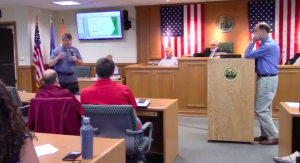
VIDEO #2: Click on Image to View
00:00 – 2:25: City of Kingston Mayor Steve Noble
“The point of the agency is to manage the county’s waste stream. With the Ulster County recycling law it tells the agency that it’s your responsible to manage recycling in the county….a prerogative of the agency, and the agency has invested alot of resources over the years. Recycling has changed, but the agency has not (to meet those changes). This is a countywide issue. How many county residents out of 180,000 people do single stream recycling? My guess is a large majority of the county are served by single stream. Transfer stations are a smaller number than they were 30 years ago. The question is, how do we look at solid waste going forward? Do we have a county plan?”
2:26 – 3:12: On the Flow Control Law, CoK Mayor Steve Noble
“I do want to make a point of clarification on net service fees. I indicted that the county took on a $2 million dollar burden before flow control took it back. That $2 million was placed on the backs of the residents of the city and towns that pay the tipping fees. We went from $70 to $103 per ton. The amount really just moved from the county as a whole to the city residents when flow control occurred. “
3:13 – 7:33: Charles Landi, UCRRA Board Member
“There is another shortcoming of our flow control law, three years ago when it passed here – recycling was left out of it. We have no control over recycling. If we’re ever going to get the MRF running, we would need that flow. We need an amendment to our flow control law to include recycling.”
“It’s a state law in your enabling legislation. If we can get the state to amend it, the county should have a plan for recycling so that we can be in charge of our own destiny.” – CoK Mayor Steve Noble.
“Another option you have, talking to your engineering department, you have a transfer station that has a footprint of 8 acres which means that you have room to store single stream recycling.” – Charles Landi
“The point I believe of UCRRA is to have a coordinated countywide approach. The reason the agency came into existance was so that individual towns in the coutny wouldn’t be in charge of managing their own solid waste or recycling…with a proposal to stop accepting single stream and for the City to deal with it themselves and work with the same vendors that the coutny is working with, is again starting to shift their responsibility of countywide solid waste management to individual towns and communities. That’s a large policy shift, and the residents of the county should have a more robust dialogue…..my transfer station is only open 1 1/2 days a week and we only have one way master. We are only talking about 2,000 tons of single stream recycling per year. That’s 30 tons a week. We have 8,000 tons of trash. The cost of managing 2,000 tons a year of single-stream, there is an efficiency of scale…if we stopped bringing single stream to you all, I don’t think you’d be laying off employees. It fits into the work load of the agency. it would just be passing that cost on to the city. Some of tipping fee ($103 per ton) goes to the agency operation. We help pay for overhead, the MRF, any other activities. We are already contributing as well as paying the $20 a ton.” – City of Kingston Mayor Steve Noble.
11:07 – 15:40: Town of Ulster Supervisor James Quigley
“It was suggested at the end of June you were going to cease (taking SS recycling) There were some timelines thrown out, price changes, then the goal of stopping accepting single stream recycling. The ToU has to make a decision, so can you lay out a time line for what you may be visioning as to when you are going to make a decision about what you are going to do?”
“In an April resolution, we discussed hiking prices to $40 per ton, and to eliminate single stream as of January 1st….what we are now looking at now our regular meeting on May 30 is to settle on two resolutions: a price change and one considering ending single-stream recycling on January 1, 2019. If we do a price change, it will take effect on July 1, 2018 – but that hasn’t been decided yet. It will be decided after we put it up for public consideration in a public hearing on June 14th. The Board will vote on both resolutions on June 27th at 5pm.” – David Gordan
“The City of Kingston, Town of Ulster and Town of Saugerties equals approximately 35 – 40% of recycling. The balance is from private haulers, not including Waste Management and County Waste. Welsh is about 45%. The City of Kingston about 35%. The rest is the Town of Ulster and Saugerties.”
“The Town of Ulster is proposing to move from single-stream?” – David Gordan
“I’m not proposing anything, I’m considering. Big difference.” – Town of Ulster Supervisor James Quigley
16:25 – 21:18: Town of Ulster Supervisor James Quigley
“What’s the probability of a tipping fee increase for next year?”
“Our five-year contract with Senaca falls is up in a year…landfills are closing around the state, so I’m nervous about what will happen next year that will take effect as of January 1, 2020. We’ve done our due diligence. I’ve known this was coming down the pike, and we’ve been saving for this time. Agency is planning to operate with a deficit to move things up incrementally. The good news is that we’ll keep the tipping fee the same for another year….though the landfill may be at capacity at 2025.
21:26 -25:30: City of Kingston Mayor Steve Noble
“Dual stream materials are sorted, in the end you end up with some materials you shouldn’t have to begin with. With the amount of single stream brought to you, is your line not able to process cans, bottles and glass and in the end, have a heaping pile of paper? If you are already sorting out trash in the line, what’s the difference in sorting paper our of the line, too?”
“With dual stream there is little garbage, I usually need only one guy.” – Tim Rose, ED UCRRA
25:31 – 34:22: Emilie Hauser
“What has the DEC done or what do you have to do to.keep with your permit, how much recycling can you store?”
“There is a certain amount that we can take, 80 tons a day, 400 tons stored. We’ll store bales of material when the market is low, and watch the market to decide the best time to sell. The market can be low enough when we hold onto materials. If we don’t accept single stream, it will be a benefit for us, as we’ll have more space. We can store when times are bad, and sell when sales are high. This can help to keep the tipping fees low.” – Tim Rose, ED UCRRA.
34:23 – 37:58: City of Kingston Mayor Steve Noble
“What is the financial impact on the taxpayers of Ulster county?”
“We can’t pass laws, there’s no flow control on recycling. The vast majority doesn’t come to us. The impact on taxpayers, hardly any difference at all.” – Tim Rose, ED UCRRA
“Just us.” – City of Kingston Mayor Steve Noble
“When we do something fiscally responsible for us, it’s fiscally responsible for the county as a whole. If a municipality (like the city of Kingston) has chosen to invest in this way (single-stream), they may have problems. The real question is do we take those problems off of your hands?” – David Gordan
37:59 – 41:35: UC Legislator Tracey Bartels
“I agree with the Mayor that we have to take up the issue of flow control over recycling and ask for the authority from the state, we know it’s a problem going forward. As these markets dry up, we have two big haulers that are taking their single-stream out of the county because we don’t have flow control. I want to raise the concern that the agency exercise its responsibility of enforcement that that material is actually being recycled. If materials are leaving the county and going into the system and it becomes cheaper to go into their waste stream somewhere else, that would be against our county law…right now we have thousands of tons leaving the county saying ‘yes, we’re recycling’ but not a confirmation from the agency. The city of Kingston is at a disadvantage because there is nowhere to hide…we want to make sure these private companies are actually recycling these materials.”
41:36 – 46:01: COK Resident
“How difficult would it be for the CoK to go back to dual stream recycling and also, did the state encourage SS recycling, or was it because it was easier to obtain it?”
“Currently over the past 5 years, we have purchased 96 gallon totes for everyone in the city to place single-stream recycling in that tote. At that time our recycling went up 30%. Prior to that, the agency stopped providing recycling containers. There wasn’t a coordinated recycling effort in the city. We spent 1/2 million +. The bins are picked up every two weeks. Trash pick-up every week. Yard waste on the off week. 35 members (of the DPW) to do that work. With a dual-stream system, there will be another set of bins (three large bins in total) that would require another weekly pick-up. We don’t necessarily feel that is something we can afford to do, nor do we have the manpower. Why did we get into this? For one, over the last 20 years, single-stream recycling has been in the market. We were the last community to go towards single stream recycling. When the agency accepted it, we said why can’t we do it too, and the agency said ”you can” and we launched our program. ” – City of Kingston Mayor Steve Noble
46:02 -48:09: CoK Resident
“We either have to go to dual stream, or find a market for SS. Seems like the Agency has decided that they are not going to accept it. Am I right about that?”
“We are listening to everyone. The problem is the Chinese market has decided not to accept it.” – Dave Gordan
48:16 – 58:00: CoK Resident
“I wanted to understand whether the Chinese market has absolution stopped taking it, or is it that they are being more selective? What do they do with the materials? Are they just putting it in their landfills? If that’s the case, that’s really expensive garbage.”
“…the Chinese market now has 24 categories of things that they will not accept, and among them is single-stream…as of January. 1 (2018)” – David Gordan
58:01- 59:50: UC Legislator Manna Jo Greene
“Our Economic Development people have got to start incentivizing here in NY and the US. For us to be dependent on China is foolhardy…I would like for us to find a grant to purchase the extra bins. We have to be solution oriented.”
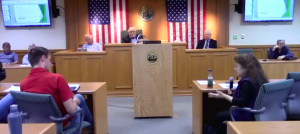
VIDEO #3: Click on Image to View
00:00 – 1:45: City of Kingston Mayor Noble
“If the city of Kingston was to go that route, it took us 4 years to implement ss recycling in the city. we just finished this year, and there are still business districts that still don’t have them. To get them back to this new way, with three bins that doesn’t include composting, and makes four bins. How do we do that by January, 2019?”
